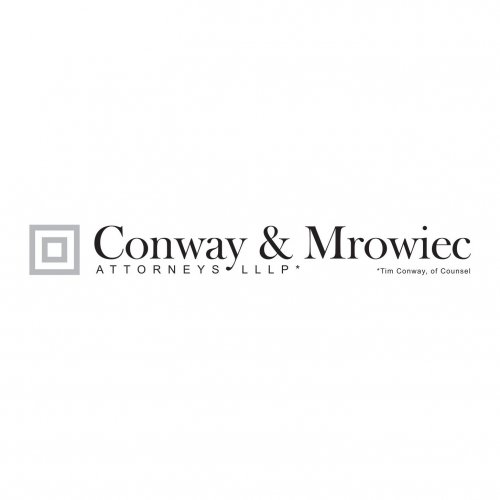Best Corporate Governance Lawyers in Illinois
Share your needs with us, get contacted by law firms.
Free. Takes 2 min.
Or refine your search by selecting a city:
List of the best lawyers in Illinois, United States
About Corporate Governance Law in Illinois, United States
Corporate governance is the structure and system of rules, practices, and processes by which corporations are directed and controlled. In Illinois, as in other states, corporate governance law sets the standards and responsibilities for how businesses make decisions, report information, and interact with their stakeholders. These laws are designed to ensure companies operate in a manner that is legal, ethical, and in the best interests of their shareholders, employees, and the broader community. Corporate governance is crucial for maintaining investor confidence, fostering transparency, and promoting compliance with regulatory requirements.
Why You May Need a Lawyer
Legal advice in corporate governance can be vital for businesses of all sizes, from startups to established corporations. Here are some common situations where seeking the help of a lawyer may be necessary:
- Establishing or updating governance documents such as bylaws, shareholder agreements, and board resolutions
- Ensuring compliance with state and federal laws and regulations
- Advising on the duties and obligations of directors and officers
- Handling disputes among shareholders or board members
- Navigating mergers, acquisitions, or dissolutions
- Responding to shareholder or regulatory concerns about company practices
- Implementing risk management and internal control policies
- Managing conflicts of interest
- Addressing whistleblower claims or investigations
- Conducting internal investigations or audits
Local Laws Overview
In Illinois, corporate governance is primarily governed by the Illinois Business Corporation Act (IBCA), which sets out the framework for the formation, operation, and dissolution of corporations in the state. Key aspects of Illinois law regarding corporate governance include:
- Requirements for articles of incorporation and bylaws, which define the scope of corporate authority and operational procedures
- The roles and fiduciary duties of directors and officers, including the duties of care, loyalty, and good faith to the corporation and its shareholders
- Procedures for conducting board and shareholder meetings, including notice requirements, voting rights, and quorum regulations
- Shareholder rights, including the right to access records, receive disclosures, vote on major corporate decisions, and bring derivative actions
- Provisions concerning conflicts of interest and self-dealing, mandating disclosure and approval protocols
- Rules regarding indemnification and liability protection for directors and officers in certain circumstances
- Additional regulations for certain sectors, such as financial services or nonprofit organizations, that may impose more stringent governance requirements
Frequently Asked Questions
What is corporate governance?
Corporate governance refers to the system of rules, practices, and processes by which a business is directed and controlled. It ensures that the company operates ethically and in compliance with the law, while balancing the interests of shareholders and other stakeholders.
What law governs corporate governance in Illinois?
The primary law governing corporate governance in Illinois is the Illinois Business Corporation Act (IBCA). Federal regulations and other state laws may also apply, depending on the nature of the business.
Who is responsible for corporate governance in a company?
The board of directors, corporate officers, and sometimes shareholders are primarily responsible for implementing corporate governance policies and procedures.
What are the fiduciary duties of directors and officers?
Directors and officers have duties of care, loyalty, and good faith to act in the best interest of the corporation and its shareholders, avoid conflicts of interest, and make informed decisions.
How can shareholders participate in corporate governance?
Shareholders can participate by voting on important matters at annual or special meetings, electing board members, proposing resolutions, and inspecting certain corporate records.
What should be included in corporate bylaws?
Bylaws should define the rules for board and shareholder meetings, director and officer roles, voting procedures, and other operational issues specific to the corporation.
Are there special governance requirements for nonprofits in Illinois?
Yes, nonprofit organizations in Illinois have their own set of governance laws under the Illinois General Not For Profit Corporation Act, which requires compliance with particular governance and reporting obligations.
What happens if a corporation does not comply with governance laws?
Non-compliance can result in legal disputes, monetary penalties, loss of liability protections, loss of corporate status, or other enforcement actions by regulators or shareholders.
Can members of the board be held personally liable?
Directors and officers may be held personally liable for actions that breach their fiduciary duties or involve illegal or fraudulent activity, although Illinois law provides certain protections if they act in good faith.
When should you consult a lawyer regarding corporate governance?
It is advisable to consult a lawyer when forming a corporation, making significant governance changes, facing disputes, suspected breaches of duty, or whenever regulatory or compliance questions arise.
Additional Resources
If you need further information or assistance with corporate governance in Illinois, the following resources may be helpful:
- Illinois Secretary of State - Business Services Division: For filings, corporate records, and information about forming or maintaining a corporation
- Illinois Attorney General - Charitable Trust Bureau: For information specific to nonprofit corporate governance and compliance
- American Bar Association (Section of Business Law): For publications and best practices on corporate governance
- Illinois State Bar Association: For lawyer referrals and legal guidance
- Local law libraries and business development centers: For access to reference materials and community resources
Next Steps
If you believe you need legal assistance in the area of corporate governance, consider the following steps:
- Assess your specific corporate governance needs and identify the issues you are facing
- Gather relevant corporate documents such as your articles of incorporation, bylaws, recent board minutes, and shareholder communications
- Contact a qualified attorney who has experience with corporate governance matters in Illinois
- Prepare questions or concerns to discuss with your lawyer to make the most of your consultation
- Stay informed by accessing reputable resources and maintaining regular communication with your legal advisor
Proper legal guidance can help ensure your business is compliant, well managed, and positioned for success.
Lawzana helps you find the best lawyers and law firms in Illinois through a curated and pre-screened list of qualified legal professionals. Our platform offers rankings and detailed profiles of attorneys and law firms, allowing you to compare based on practice areas, including Corporate Governance, experience, and client feedback.
Each profile includes a description of the firm's areas of practice, client reviews, team members and partners, year of establishment, spoken languages, office locations, contact information, social media presence, and any published articles or resources. Most firms on our platform speak English and are experienced in both local and international legal matters.
Get a quote from top-rated law firms in Illinois, United States — quickly, securely, and without unnecessary hassle.
Disclaimer:
The information provided on this page is for general informational purposes only and does not constitute legal advice. While we strive to ensure the accuracy and relevance of the content, legal information may change over time, and interpretations of the law can vary. You should always consult with a qualified legal professional for advice specific to your situation.
We disclaim all liability for actions taken or not taken based on the content of this page. If you believe any information is incorrect or outdated, please contact us, and we will review and update it where appropriate.
Browse corporate governance law firms by city in Illinois
Refine your search by selecting a city.












